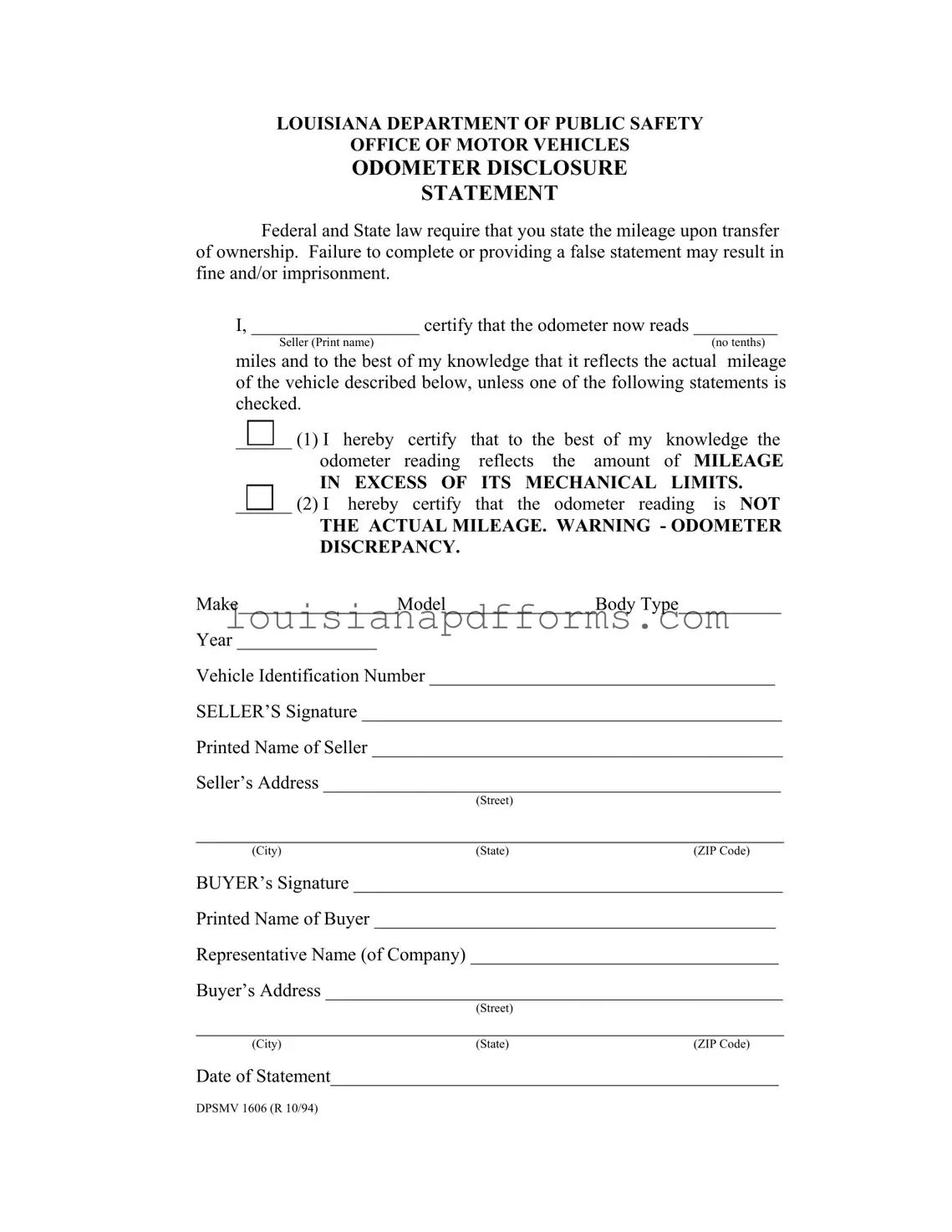Blank Dpsmv 1606 PDF Form
The DPSMV 1606 form is an Odometer Disclosure Statement required by the Louisiana Department of Public Safety. This document ensures that both buyers and sellers accurately report the mileage of a vehicle during ownership transfer. Failing to complete this form or providing false information may lead to serious legal consequences.
Access My Document Now

Blank Dpsmv 1606 PDF Form
Access My Document Now

Access My Document Now
or
Free Dpsmv 1606
You’re halfway through — finish the form
Edit, save, and download your completed Dpsmv 1606 online.
